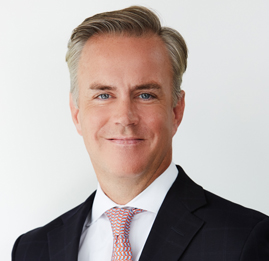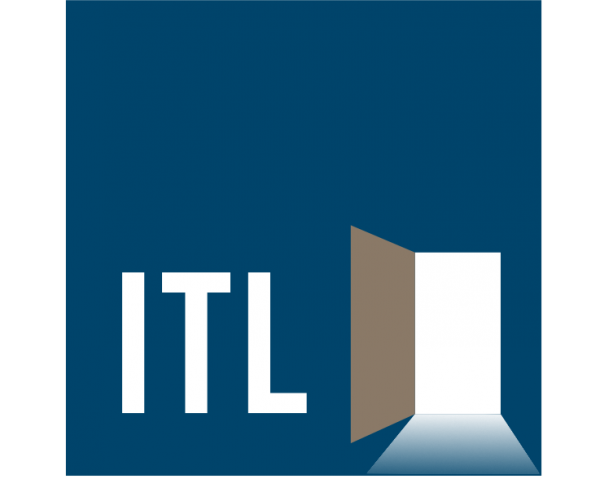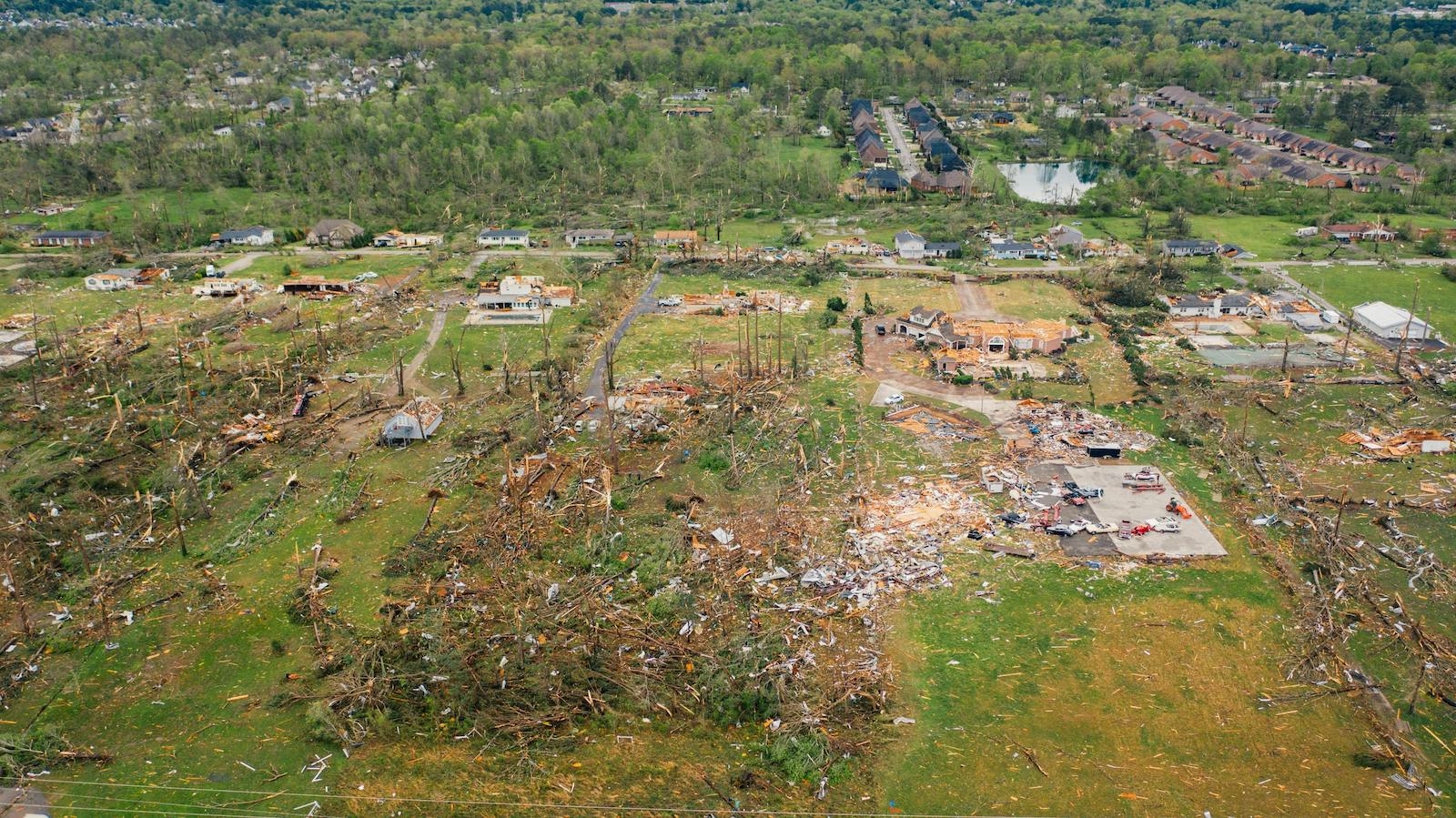Paul Carroll
To jump right in: I see the format is rather different this year. It’s more compressed, with three panels all in one afternoon. What’s behind the change?
Sean Kevelighan
In this day and age, we're all trying to figure out the best way to do in-person events, now that we've all been introduced to virtual events. Short, concentrated events are a great way to use the time efficiently while still allowing for networking on the back end. So that's the format we're going with. People aren't necessarily having to take a day or days out of their work but can come to Washington, DC, and potentially do other meetings besides just the Town Hall.
This is a good time of year to have an event that sets up the following year, especially here in DC.
Paul Carroll
How did you come to the title, "Attacking the Risk Crisis," for what you’re calling a Town Hall?
Sean Kevelighan
I'll break that up in a couple of ways. We're focusing on climate risks, which we see as a collective, community issue, and town halls historically have been a place where people gather and try to figure out action items that can tackle issues at hand. For this climate risk issue, which many people would consider a crisis, we wanted to bring in not just the insurance industry group but the policy-making group, as well, which, again, suits Washington, DC.
We want to bring in others who are perhaps not necessarily or directly tied to insurance but have an important role to play in the climate risk discussion. For example, Fannie Mae will be part of this. So will the FHFA [Federal Housing Finance Agency]. We're bringing in the Brookings Institution and their economics team, as well. We’re taking a more holistic view of climate risk, with the idea that we want to come away from this with some behavioral changes that we can work toward.
This is something we at Triple-I have been working very hard on for the last few years. Even this last year, in 2023, we had a project with the National Institute of Building Sciences, which was named Roadmap 2.0, to drive behavioral changes toward resilience.
That is where we want to go with this event. We want to talk about what climate risk means for insurance and others, what AI and innovation can bring to the table and what policies we need to look at.
Paul Carroll
The federal agencies are there because climate risk affects mortgages.
Sean Kevelighan
Yes, a big part of climate risk in this country is that we're seeing more and more people living in harm's way. And when you're living somewhere, chances are you're looking at either renting or purchasing property. As you're doing that, we believe at Triple-I that we need to bring risk management into that
discussion and into that transaction much earlier on, whether it's first-time homebuyers whom the FHA [Federal Housing Administration] would cover or the mid-market, which the FHFA covers, or even commercial development. In all of these cases, perhaps we're developing or we're purchasing real estate, and we're perhaps not thinking about risk at the time when it should be considered. As a result, by the time we get into these areas and into these properties, we're having to rebuild or back build, whereas we prefer that we understand the risk and can build forward and be more proactive about it.
Paul Carroll
That makes a lot of sense. I shouldn’t enter a contract to buy a house and only then learn that it’s at risk from flooding, severe storms, wildfires and so on. I should know about those risks right as I’m starting to look at houses, including information on what my insurance premiums would be.
I want to ask about a few specific climate-related items I’ve read about recently, including one I saw in your daily newsletter, about the Fortified program, which seems to be doing quite a bit of good in Alabama. That seems to exemplify the kind of thing you're trying to do to get people to build resilience into their properties from the get-go.
Sean Kevelighan
Absolutely. That Fortified program that's done in conjunction with Alabama and the University of Alabama's Risk Center is an ideal example of what communities can do when they look at things more collectively, more holistically. Fortified is a certified home building process developed by the Insurance Institute for Business and Home Safety, and it helps us withstand the likes of hurricane-strength winds or other natural catastrophes. And Alabama has embraced this. I think they are a unique example in the Gulf Coast community. Neighboring states arguably have many more issues because they haven’t focused as much on resilience.
The program has been featured in your alma mater, the Wall Street Journal, as something that is working. We're hoping our Town Hall will lead to more of these types of community-based projects.
Paul Carroll
Another thing I saw is that five insurers are getting back into the Florida homeowners market. That sounds like at least a bit of progress.
Sean Kevelighan
That is a sign of progress. We're cautiously optimistic about the state of Florida. In the last year, we saw some legal reform take place.
We had significant amounts of legal system abuse in the state of Florida, so much so that it was causing insurers to pull out of the state or declare insolvency. In fact, six insurers went insolvent before Hurricane Ian ever hit last year. The insolvencies occurred during a relatively quiet time for hurricanes, so they were going insolvent because there was so much legal activity. In fact, about 90% of all homeowner litigation in the entire country resides in the state of Florida, whereas only about 9% of the total claims for homeowners reside in that state.
The state legislature got at the problem, especially after they saw what was happening with Ian, which brought national attention to the problem.
We often say that climate risk plus legal system abuse creates a property crisis. And that's what was happening. There simply wasn't enough insurance availability or affordability in the state. And when you're a state where more and more people are moving because it's one that is preferred for the likes of retirement, you need to fix that problem.
We do commend the legislature for addressing it and fixing it. However, in the days between when the legislature passed that legislation and when it was signed into law, the plaintiff side of the legal system dumped about 280,000 cases back in. So, there's a little ways to go to get through all of these litigation costs in that state.
Nonetheless, to your question, some insurers are seeing the light at the end of the tunnel, and they're beginning to want to go back and do business in that state. Insurance thrives in these large, growing economies. Insurance is designed to sustain economic growth. Thankfully, with this reform, we'll see more opportunities to do that.
Paul Carroll
Separate from climate change, but also related to Florida, there was a piece the other day in the Washington Post about automobile glass. It sounded like the same sort of issue – one-way attorney fees -- that was messing up the homeowners market. You had people going around in parking lots, saying, "Sean, you've got a nick in your windshield. Sign the rights over to me, and I’ll get it replaced with no deductible.” Then the glass companies would charge the insurance companies a bizarre amount of money, and attorneys would file lawsuits, knowing that any kind of settlement at all by the insurers would entitle the attorneys to charge their full fees.
It sounds like there is some progress on that front, as well, although with the same sort of lag you're talking about with homeowners litigation, because there still are lots of cases that have to work their way through the system.
Sean Kevelighan
Yeah, absolutely. You've touched on what, down in the state of Florida, they refer to as Assignment of Benefits. That allows a claimant, sometimes unknowingly, to sign over the insurance benefits to a contractor or a lawyer. People were actually camped out in parking lots and walking around looking for cracked glass, waiting for the person to come back to their car and get the benefit assigned to them. And lo and behold, we've got a big claim coming the insurance companies' way.
We actually call the Assignment of Benefits legalized fraud, because it's really designed to inflate claims. Claims are filed at 10, 20, 30 times what they should have been and, again, put into the legal system with the intent to settle. You'd sometimes see a claim being put into the legal system for $1, meaning it was just $1 over the threshold of what an insurer was willing to pay – to set the stage for a settlement and for attorney fees.
Paul Carroll
By contrast, it seems like reform has just started in California. Is that right?
Sean Kevelighan
Yes, and I would say they are different circumstances. In Florida, we've talked a lot about legal system abuse, while in California, we've pinpointed what I call antiquated regulation.
When insurers in this day and age are pricing risks, they use modeling and reinsurance. Another factor is inflation. Well, the state of California decided back in the ‘80s that modeling shouldn't be allowed when pricing insurance, reinsurance shouldn't be taken into account in the pricing of insurance and insurers were not allowed to adjust for times like this, when we're seeing heightened periods of inflation. That makes risks very hard to underwrite.
With the state of California excluded, personal lines and homeowners lines both have a combined ratio of over 110% right now, and California is making the situation even more challenging. So they have to make some difficult decisions.
Paul Carroll
Louisiana is the other state I should ask about, just because you talked about Gulf states. I'm less clear on what's going on there.
Sean Kevelighan
Well, it's a combination of a lot of things in the state of Louisiana. Legal system abuse is a big one. Obviously, it's a state that's vulnerable to natural catastrophe, perils, hurricanes. And it's, again, very challenging to get underwriting to where it should be. In fact, the industry average combined ratio for homeowners insurance in the state is 462% -- remember, anything over 100% means you’re paying more on claims than you’re taking in as premium.
We are seeing some changes, particularly at the regulatory personnel level, that hint toward progress.
Paul Carroll
Those are the issues that are top of mind for me on climate. Is there anything else we should discuss?
Sean Kevelighan
I’d note that the industry has an important role to play in terms of leadership. By definition, we're risk managers, and we provide a product to help manage risk and promote resilience. So Triple-I is trying to forge these important discussions and make sure insurance has a seat at the table. Sometimes people think insurance is going to take care of all the problems. But the industry simply can't do that. And when you get to points where markets may be uninsurable, that doesn't help things, either.
The insurers and the insurance industry want to be in these important communities. They want to be able to underwrite the risk. We just need to help people understand that there's a collective responsibility.
I think this Town Hall discussion will help, and we’ll have more discussions like this in the coming year. We need people to be more top of mind about risk management to make the necessary behavioral changes.
Paul Carroll
That's great. I look forward to seeing you at the Town Hall next week.
The Triple-I Town Hall is being held on Nov. 30 at The Mayflower Hotel in Washington, D.C. There are still a few seats lefts. Register now >
 |
Sean Kevelighan joined the Insurance Information Institute as President and Chief Executive Officer in August 2016. Previously, he was Group Head of Public Affairs for Zurich Insurance Group where he oversaw Government and Industry Affairs as well as Corporate Responsibility. He joined Zurich in May 2013 as Head of Government and Industry Affairs for North America, with responsibility for driving the public policy agenda in the region. Prior to that, he worked at Citigroup, Inc., as Head of Strategic Communications for its Global Consumer Banking business, and for Zurich, as Head of Group Media Relations in North America. He has served in various public sector posts in Washington, D.C. As a political appointee in the administration of President George W. Bush, he served first in the Department of Treasury as a spokesperson for economic issues, and eventually became Senior Advisor for the Office of Tax Policy. He was also the Press Secretary for the White House Office of Management and Budget. Additionally, he worked on Capitol Hill, serving on the staff of members of Congress; most notably as Legislative Director for Representative Bob Schaffer of Colorado. Sean's private sector experience in Washington, D.C. included positions at public affairs firms such as Edelman and Hill & Knowlton. He advised numerous multinational and FORTUNE 100 corporate clients on policy issue management programs, corporate reputation campaigns and crisis communications. Sean is a graduate of the University of Colorado at Boulder. He and his wife Annik have three children. He is an avid enthusiast of exercise and outdoors, participating regularly in triathlons and other sporting events. |






